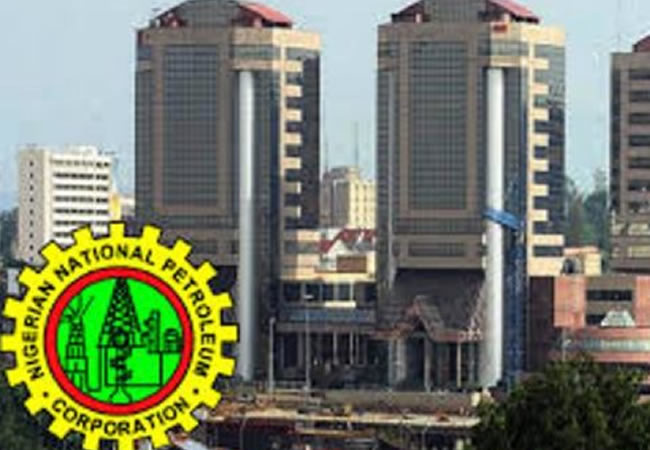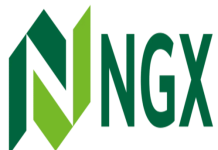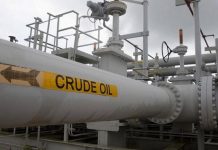The Nigerian National Petroleum Corporation (NNPC) had a revenue deficit of N1.29 trillion between January and September of this year, according to the most recent data from the national oil company.
Despite its projected gross annual revenue of N4.979 trillion for the current fiscal year, based on a monthly expected income of N414 billion, the corporation only made N2.44 trillion during the period, according to the corporation.
Read Also: Nigerians will be notified when we are ready to recruit – NNPC
Despite forecasting a gross income of N3.734 trillion for the first nine months, the NNPC failed to meet the target in any of the months under review. However, it had its best month so far this year in September, when it earned more than N400 billion.
In January, the corporation fell far short of its target, earning only N195.62 billion out of a projected N414.9 billion for the month, and in February, it fell even further to N191.19 billion.
Similarly, in March, the NNPC earned N224.58 billion; in April, it earned N156.36 billion; in May, revenue totaled N320.3 billion; and in June, the NNPC earned N295.39 billion.
In addition, the NNPC more than halved its total projected income in July, earning N270.4 billion; did exceptionally well in August, earning N389.1 billion; and had its best month yet in September, earning N400.446 billion.
The increase in the NNPC’s gross revenue in the last two months of August and September could be attributed to rising crude oil prices, which have risen to a year high of $86 per barrel, up more than 60% since January when it began to rise.
Read Also: NNPC opposes banks’ decision to reduce funding for fossil fuels
This, however, has not translated into significantly more revenue for the federation because a large portion of it goes to petrol subsidy payments, despite the start of the implementation of the Petroleum Industry Act (PIA), which should normally ensure a free market regime.
In the same vein, the document revealed that the NNPC had recorded a negative variance of N724.2 billion as of September from its cost recovery/cash call projection tagged T1/T2 for the year amounting to N2.72 trillion and an estimate of N1.55 trillion for the first nine months.
The corporation forecasted N172.66 billion in monthly expenses for the purpose in 2021 in its income and expenses statement, but was only able to meet its obligation to the tune of N82.2 billion in January, N79.5 billion in February, N87.5 billion in March, N75.8 billion in April, and N124.33 billion in May.
The NNPC was able to pay N56.6 billion, N70.4 billion, and N104.5 billion in June, July, and August, respectively, and fulfilled its obligation to the tune of N147.501 billion in September, but was still left with a huge deficit of N724.2 billion for the period under consideration.
As previously reported, fuel subsidies consumed N864 billion over the nine months, while pipeline security consumed N34.8 billion, exceeding its projected N34.8 billion for the entire year by N12.59 billion as of the ninth month of the year.
According to the data, only the subsidy payment and pipeline security and maintenance obligations are fully paid for among all of the company’s obligations.
Read Also: Benue is Nigeria’s worst governed state, a true picture of Afghanistan – Agbese
The national oil company, renamed NNPC Limited, has faced numerous challenges over the years, rendering it unable to compete with peers in other parts of the world.
Some of the most serious issues are oil theft, state-backed petrol subsidy payments, and aging infrastructure across the entire industry, particularly in the upstream, which has hampered the industry’s ability to meet its OPEC-allocated production quota for many months.
In October, the group’s Group Managing Director, Mallam Mele Kyari, raised the alarm that a few Nigerians, whom he described as the elite, steal up to 42.25 million barrels of crude oil per year.
Speaking recently at a forum organized by the Nigerian Guild of Editors (NGE) in Abuja, he blamed the elite, including politicians, for the nation’s continuous fuel importation and the poor state of the nation’s refineries, but said the corporation was improving since President Muhammadu Buhari decided not to interfere in its operations.
“As we all know, Nigeria is currently suffering from an energy deficit. All of our petroleum products are imported. Every attempt to save our refineries in recent years has resulted in one setback or another.
Read Also: COVID-19: Nigeria records one death and 86 new infections on Sunday
“While oil prices are rising and should have resulted in a bountiful harvest for Nigeria’s ailing and hydrocarbon-dependent economy, importation of the finished product erodes necessary gains through the use of foreign exchange earnings and payment of subsidies, which have risen to more than N1 trillion in less than eight months since the scheme was introduced through the back door.”
“Who is stealing crude oil?” It is not a common man in the village. It is the ruling class, and we must all work together to combat them. “When we fight them, it is for the sake of all of us,” he explained.
According to a recent review, the national oil company has lost over 42 million barrels due to underproduction in all of its assets in the Niger Delta that it operates alongside its Joint Venture (JV) partners in the last year.
Join Television Nigerian Whatsapp Now
Join Television Nigerian Facebook Now
Join Television Nigerian Twitter Now
Join Television Nigerian YouTUbe Now





